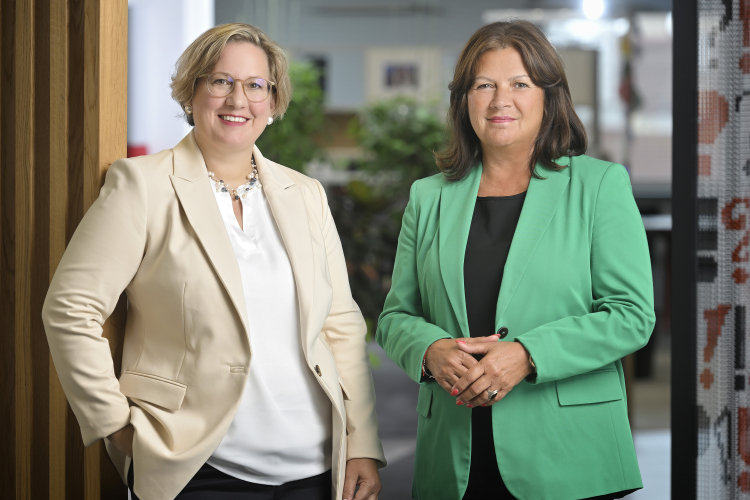80th Anniversary of Liberation - 80th Anniversary of Relaunch of Chamber of Labor
13.03.2025

Liberation from National Socialism 80 years ago reminds us how precious freedom and democracy are – and how important they are for a just and peaceful society. In many parts of the world, diversity of opinion, equality, and peace are currently under massive threat. Because these values cannot be taken for granted, we must defend them every day with all our strength.
The right to vote is the cornerstone of democracy, and genuine co-determination must start early: at school, during vocational training and later in the workplace. A democracy in which works councils are massively threatened and collective bargaining is deliberately obstructed is in a dangerous imbalance. As the Chamber of Labor (AK), we defend ourselves against attacks on works councils and staff representatives. We are proud that all our members can vote in the AK elections – regardless of what passport they hold.
The Chamber of Labor is part of the trade union movement and a child of democracy. As an institution, it experienced first-hand what the end of democracy meant: between 1934 and 1945, the Chamber of Labor was smashed by Austrofascism and later by National Socialism. The fascists replaced democratically elected self-governing bodies with state-controlled administrative commissions and banned all parties and independent trade unions. The Chamber of Labor was transformed into state trade unions, and many of its members were persecuted or driven into exile. With its incorporation into the Nazi regime in 1938, the Chamber of Labor was finally dissolved. Resistance to the dictatorships was life-threatening; many representatives of the Chamber of Labor were persecuted, imprisoned or murdered for political and racial reasons.
One of these was the Jewish social scientist and trade unionist Käthe Leichter, born 1895. She founded the first women's department of the Chamber of Labor in Vienna 100 years ago. Leichter's studies were groundbreaking for many socio-political reforms of the First Republic that significantly improved the position of women. In 1934, Leichter was dismissed without notice by the Austrofascists and continued to fight underground against dictatorship and fascism. The Nazis murdered her in 1942 in the Nazi extermination center in Bernburg. To this day, the Chamber of Labor acts in the spirit of people like Käthe Leichter by representing the interests of those who do not have power, wealth or other privileges.
Even today, democracy in Austria is facing considerable pressure due to the growing power of the super-rich and large corporations as well as the increasing concentration of wealth. These developments mean that decisions are increasingly being made by a small, wealthy elite, which weakens democracy and devalues the voices of the many. In some formerly liberal democracies, neo-oligarchies are currently emerging in which billionaires own (social) media, thereby shaping social discourse and creating the world as they please.
In view of these developments, we as a society must actively strengthen our democracy and ensure that justice comes from the many and not from the elites. We need to convince companies of the benefits of co-determination and take decisive action against anti-democratic tendencies. Democracy has never been a given; it has always been hard-won.
In 2025, as we celebrate 80 years of the re-establishment of the Chambers of Labor and the founding of the Austrian Trade Union Federation (ÖGB), the year symbolizes the committed fight for workers' rights and shows how important it is to stand up for democracy.
Renate Anderl, President of the Vienna Chamber of Labor and the Austrian Chamber of Labor
Silvia Hruška-Frank, Director of the Vienna Chamber of Labor and the Austrian Chamber of Labor
Empfohlen
"History is constantly teaching, but it finds no students", claimed the Austrian author Ingeborg Bachmann pessimistically. On the other hand, she stated that "the truth is reasonable for people."
How can we actually approach the issue of "never again" and "learning from history and drawing the right conclusions"?
